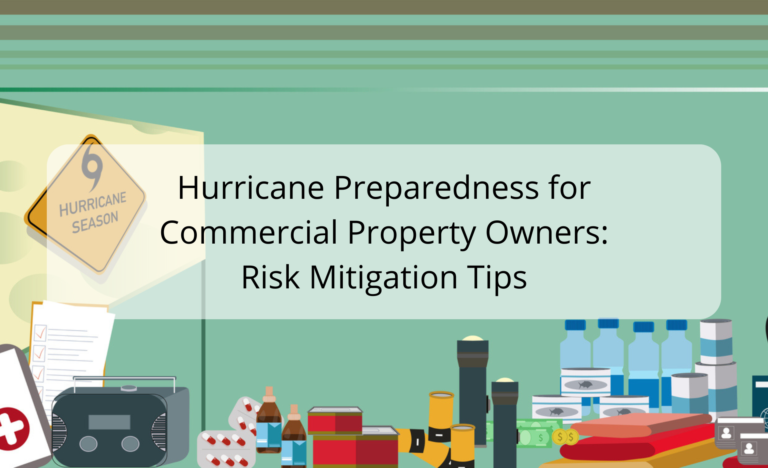As the calendar turns to the official start of hurricane season, commercial property owners must take proactive steps to safeguard their investments against the potentially devastating impacts of these powerful storms. Hurricanes can cause significant damage, including flooding, wind damage, and power outages, leading to costly repairs and prolonged business interruptions. Preparing in advance can significantly mitigate these risks, ensuring your property and operations are better protected. This blog will provide essential risk mitigation tips for commercial property owners and guidance on what to do after hurricane damage, concluding with how D.A. Lamont Public Adjusters can assist you in navigating the claims process.
Understanding the Hurricane Season
The Atlantic hurricane season officially runs from June 1 to November 30. Staying vigilant during hurricane season is crucial for the protection and resilience of your commercial property. Hurricanes can form quickly and with little warning, leaving minimal time for last-minute preparations. By maintaining a state of readiness, you can significantly reduce the risk of severe damage and ensure the safety of your business operations and personnel. Vigilance involves closely monitoring weather forecasts and updates from reliable sources, such as the National Hurricane Center, to stay informed about potential threats.
Risk Mitigation Tips for Commercial Property Owners
While it’s impossible to prevent a hurricane, you can significantly reduce its impact by implementing effective risk mitigation strategies. These tips will help safeguard your property, minimize potential losses, and ensure a quicker recovery should disaster strike. By being prepared, you not only protect your physical assets but also ensure the continuity of your operations and the safety of your employees.
Risk Assessment: Conducting a thorough risk assessment of your property is the first step in hurricane preparedness. Identify areas most vulnerable to wind, flooding, and structural damage. Evaluate the condition of your building’s roof, windows, doors, and exterior walls. Ensure that any potential hazards, such as loose debris or unsecured equipment, are addressed.
Securing the Property: Securing your property is essential to minimize damage during a hurricane. Install storm shutters or impact-resistant glass to protect windows and glass doors from shattering. Reinforce doors and windows with heavy-duty hinges and deadbolts. Ensure your roof is in good condition and consider installing hurricane straps to secure the roof to the walls. Secure outdoor equipment, such as HVAC units and generators, to prevent them from becoming projectiles. Trim trees and remove dead branches to reduce the risk of debris damaging your property.
Prevent Flood Damage: Flooding is a significant concern during hurricanes. To protect your property from flood damage, elevate electrical equipment, HVAC systems, and other critical machinery above potential flood levels. Use sandbags, flood barriers, or floodproof doors to prevent water from entering your building. Ensure proper drainage around your property by clearing gutters, downspouts, and storm drains.
Backup Power: Power outages are common during hurricanes, so having a backup power supply is crucial. Install a reliable generator to provide backup power during outages and ensure an adequate fuel supply for your generator. Establish a refueling plan to keep your generator operational during extended outages.
Protecting Data: Protecting your business data is essential to maintaining operations after a hurricane. Regularly back up important data and store copies offsite or in the cloud. Implement data security measures to protect against data loss or theft during a hurricane.
Creating An Emergency Plan: Developing an emergency communication plan ensures that you can quickly and effectively communicate with employees, customers, and emergency services. Maintain an updated list of contact information for all employees, vendors, and emergency services. Use multiple communication tools, such as email, text messaging, and social media, to disseminate information. Establish clear emergency procedures and conduct regular drills to ensure everyone knows what to do during a hurricane.
Reviewing Insurance Coverage: Reviewing your insurance coverage is a critical aspect of hurricane preparedness. Ensure your insurance policy covers hurricane damage, including wind, flood, and business interruption. Verify that your coverage limits are adequate to cover potential losses. Keep detailed records of your property, including photos, videos, and receipts, to support insurance claims.
After the Hurricane: Steps to Take
Safety should be your top priority after a hurricane. Be cautious of hazards such as downed power lines, broken glass, and structural damage. Contact emergency services if there are immediate safety concerns. Thorough documentation is crucial for insurance claims. Take photos and videos of all damages, including structural damage, water damage, and damaged equipment. Create a detailed inventory of damaged items and equipment.
Notify your insurance company as soon as possible. Report the damage and file a claim promptly, providing all necessary documentation, including photos, videos, and an inventory of losses. Make temporary repairs to prevent further damage by covering broken windows, doors, and roofs with tarps or plywood. Remove standing water and dry out affected areas to prevent mold growth. Consider hiring professionals to assist with cleanup and repairs, including restoration services for water damage, mold remediation, and structural repairs. Hire a public adjuster to assist with the insurance claims process and ensure you receive a fair settlement.
Public Adjusters for Post-Hurricane Recovery
Preparing your commercial property for hurricane season is essential to mitigate risks and protect your investment. Conduct a thorough risk assessment, secure your property, implement flood protection measures, ensure data protection, and have a robust emergency communication plan to significantly reduce the potential impact of a hurricane. After the storm, document damage, contact your insurance company, and seek professional help to facilitate recovery.
D.A. Lamont Public Adjusters is here to help you navigate the complexities of the insurance claims process with ease and confidence. Our experienced team of adjusters specializes in a wide range of claims, from hurricane and flood damage to fire and structural collapses. We are dedicated to ensuring you receive the maximum compensation needed to restore and rebuild your business. From initial assessment to final settlement, we manage every aspect of your claim, allowing you to focus on your recovery. With our comprehensive approach and unwavering commitment to client advocacy, you can trust us to fight for your best interests. Contact us today for expert assistance and dedicated support throughout the entire claims process.


